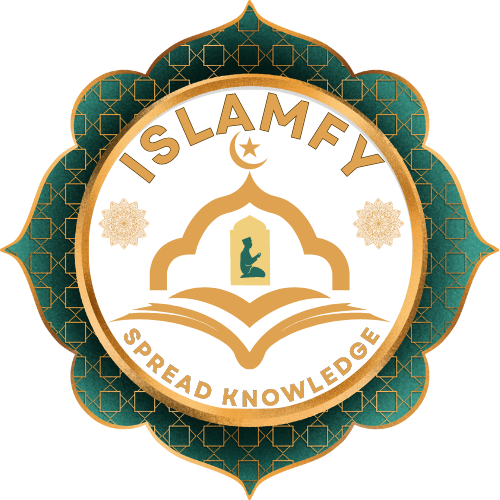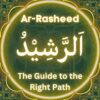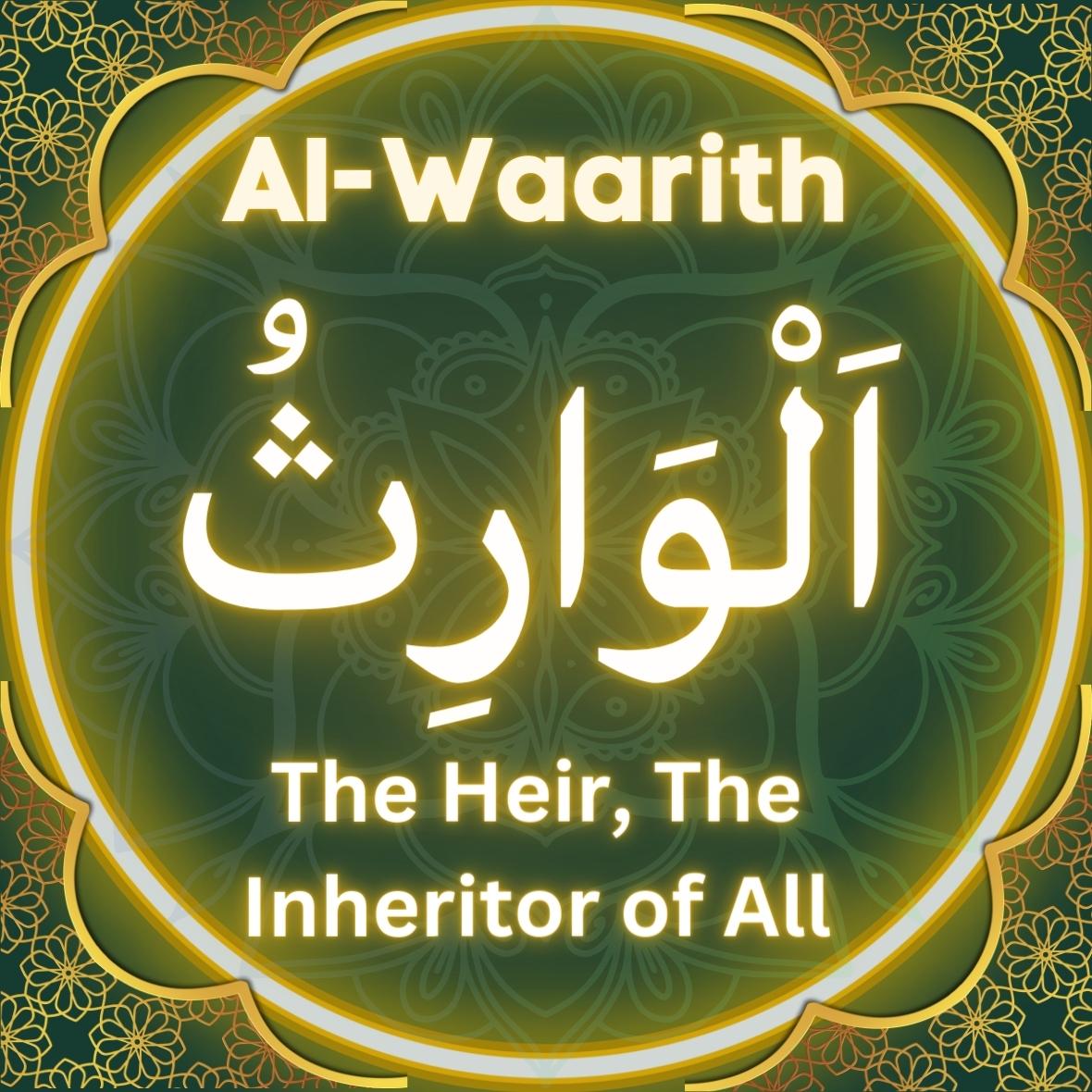Al-Waarith (ٱلْوَارِث) – The Heir, The Inheritor of All
Introduction
The Asma’ul Husna (The Beautiful Names of Allah) embody the Divine Attributes that reflect Allah’s Perfection and Majesty. Each Name deepens our understanding of who Allah is and how we, as believers, should relate to Him in worship and daily life.
One of these Names is Al-Waarith (ٱلْوَارِث) — The Heir, The Inheritor of All. While human beings inherit property, wealth, or status temporarily, Allah is the True Inheritor. Everything that exists belongs to Him alone, and when creation ceases, He remains the Eternal Owner.
This Name reminds us of our own mortality and the fleeting nature of worldly possessions, urging us to live for the Ākhirah (Hereafter), where only eternal deeds remain.
The Meaning of the Name
-
Literal Meaning: The One who remains after all creation has perished and inherits everything.
-
Metaphorical Meaning: The One to whom all ownership ultimately belongs, beyond human claims and worldly inheritance.
Thus, Al-Waarith is the Absolute Heir — when all else perishes, all returns to Him.
Linguistic and Theological Analysis
Root and Structure
-
Derived from the root و ر ث (wa-ra-tha) → meaning to inherit, to remain, to succeed after.
-
Al-Waarith is the intensive form, meaning The True Inheritor of all things.
Qur’anic Usage
The Name appears directly in the Qur’an in Surah Maryam (19:40):
﴿ إِنَّا نَحۡنُ نَرِثُ ٱلۡأَرۡضَ وَمَنۡ عَلَيۡهَا وَإِلَيۡنَا يُرۡجَعُونَ ﴾
“Indeed, it is We who will inherit the earth and whoever is on it, and to Us they will be returned.”
Classical Commentary
-
Ibn Kathir explains: Allah will remain when the people of the earth pass away, and all possessions return to Him.
-
Imam al-Ghazali notes: “Al-Waarith is the One who remains after everything perishes. He inherits everything, yet He Himself is never inherited.”
Significance in Islamic Thought
The Name Al-Waarith reminds believers that:
-
True Ownership Belongs to Allah – Human ownership is temporary; everything ends with Allah.
-
Mortality of Creation – Humans cannot escape death; what remains is what we have sent forth for the Hereafter.
-
Perspective on Wealth – Material possessions are borrowed trusts; they return to Allah.
-
Akhirah Reminder – In the Hereafter, the only “inheritance” that matters is eternal reward or punishment.
Spiritual and Practical Lessons
Five lessons emerge from Al-Waarith:
-
Detach from Materialism – Recognize that possessions are temporary.
-
Use Wealth Wisely – Spend in Allah’s way, knowing you cannot take it with you.
-
Prepare for the Hereafter – The true inheritance is righteous deeds.
-
Trust Allah in Loss – When we lose people or property, remember that all returns to Him.
-
Gratitude and Humility – Ownership is a trust, not a right; Allah is the final Owner.
Practical Implementation of Al-Waarith
Ways to live by this Name:
-
Dhikr – Recite “Yā Waarith” in remembrance of Allah’s eternal ownership.
-
Charity (Ṣadaqah Jāriyah) – Invest in deeds that continue after death.
-
Contentment – Accept that material wealth will not last.
-
Supplication – Pray for an inheritance of Paradise: “O Allah, make us among those who inherit Your mercy and Jannah.”
-
Legacy Building – Focus on leaving behind knowledge, children’s duʿāʾ, and good deeds.
Direct Qur’anic References for Al-Waarith
Surah Maryam (19:40)
Arabic:
إِنَّا نَحۡنُ نَرِثُ ٱلۡأَرۡضَ وَمَنۡ عَلَيۡهَا وَإِلَيۡنَا يُرۡجَعُونَ
Translation:
“Indeed, it is We who will inherit the earth and whoever is on it, and to Us they will be returned.”
Tafsir:
Allah reminds us that all creation perishes and all ownership returns to Him. This affirms His attribute as Al-Waarith — the True Heir.
Surah Aal-‘Imran (3:180)
Arabic:
وَلِلَّهِ مِيرَٰثُ ٱلسَّمَٰوَٰتِ وَٱلۡأَرۡضِۗ وَٱللَّهُ بِمَا تَعۡمَلُونَ خَبِيرٞ
Translation:
“And to Allah belongs the heritage of the heavens and the earth. And Allah is fully aware of what you do.”
Tafsir:
While people may hoard wealth, ultimately, all inheritance belongs to Allah. He alone remains after all.
Surah Al-Anbiya (21:89) (Duʿāʾ of Zakariya عليه السلام)
Arabic:
فَهَبۡ لِي مِن لَّدُنكَ وَلِيّٗا • يَرِثُنِي وَيَرِثُ مِنۡ ءَالِ يَعۡقُوبَۖ وَٱجۡعَلۡهُ رَبِّ رَضِيّٗا
Translation:
“So grant me from Yourself a successor who will inherit from me and inherit from the family of Jacob. And make him, my Lord, pleasing [to You].”
Tafsir:
This highlights human inheritance, yet the Qur’an contrasts it with Allah’s inheritance of all — making Him the ultimate Al-Waarith.
Related Qur’anic Verses
Surah Al-Hijr (15:23)
Arabic:
وَإِنَّا لَنَحۡنُ نُحۡيِۦ وَنُمِيتُ وَنَحۡنُ ٱلۡوَٰرِثُونَ
Translation:
“And indeed, it is We who give life and cause death, and We are the Inheritors.”
Tafsir:
Life and death belong to Allah, and He is the ultimate Inheritor after all creation passes.
FAQs
Q1: What does Al-Waarith mean?
It means The Heir, The Inheritor of All — Allah who remains after all creation perishes.
Q2: Is Al-Waarith mentioned in the Qur’an?
Yes, in Surah Maryam (19:40) and other verses that affirm Allah as the ultimate Inheritor.
Q3: How does belief in Al-Waarith affect a Muslim’s life?
It shifts focus from worldly possessions to eternal deeds and reminds us of accountability in the Hereafter.
Q4: How can Muslims invoke Al-Waarith in duʿāʾ?
By asking Allah to grant them the inheritance of Jannah and lasting good deeds.
Q5: Which Names of Allah are related to Al-Waarith?
Al-Baaqi (The Everlasting), Al-Malik (The Sovereign), and Al-Qayyum (The Self-Subsisting).



